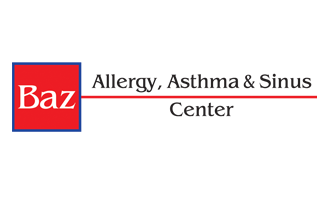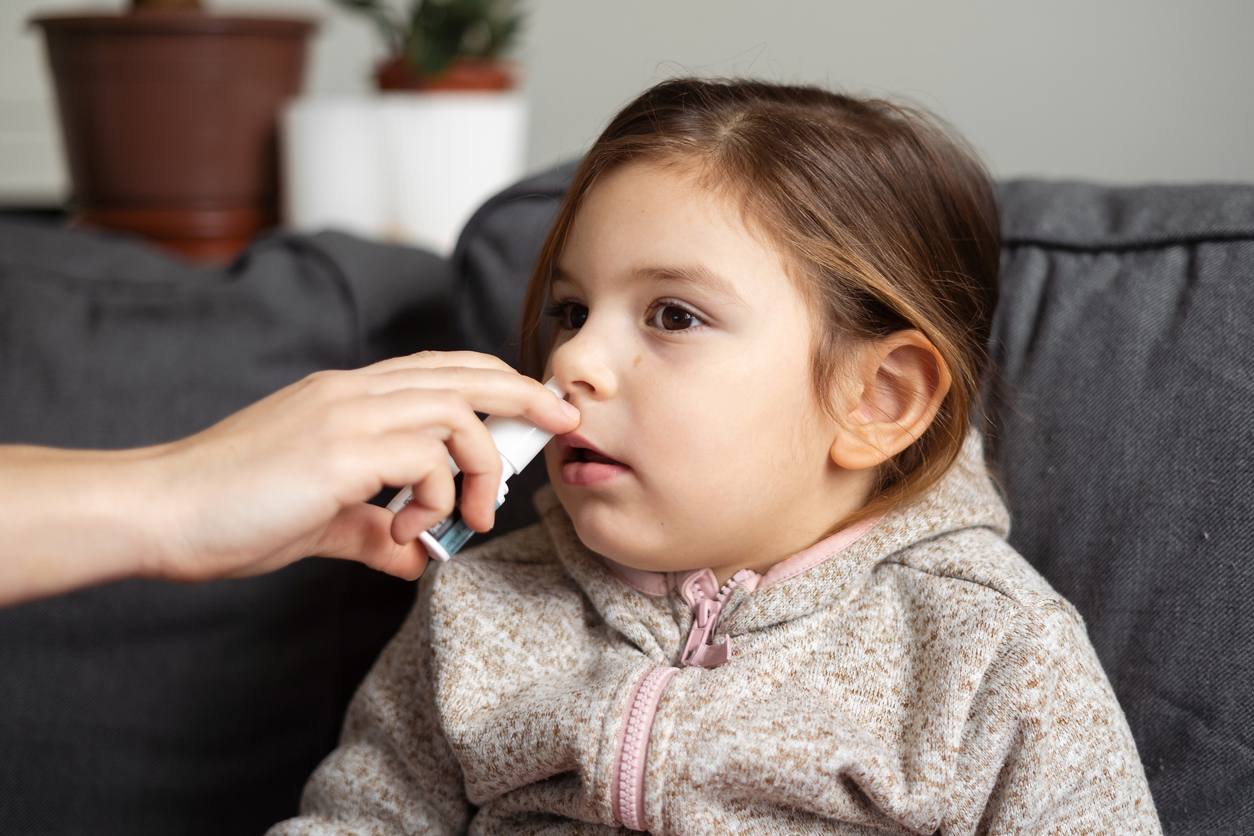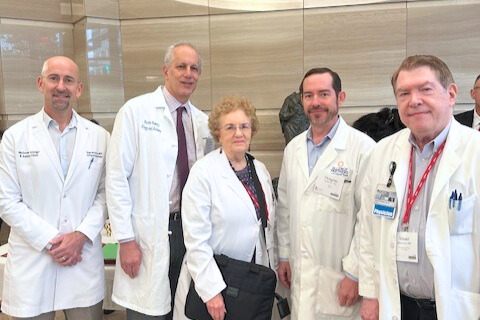Non-allergic rhinitis
Non-allergic rhinitis refers to patients who have problems with itching, sneezing, nasal congestion, or drainage, but allergy skin tests are negative or show only a few positive reactions that don’t seem to correlate with the patient’s symptoms. Negative allergy skin tests indicate that immunotherapy (allergy injections or drops) will not be helpful. Patients with non-allergic rhinitis often have significant symptoms that worsen with certain exposures, weather conditions, or seasons. Fortunately, non-allergic rhinitis often improves with medical therapy. Even many patients with allergies will also note non-allergic triggers for symptoms. The following are the most common causes of non-allergic rhinitis.
INFECTIOUS RHINITIS
Viral and bacterial upper respiratory infections, such as the “common cold,” the flu, sinusitis, may cause sneezing, itching, watery or colored drainage, sore throat, fever (though often absent), cough, and generalized fatigue and aching.
VASOMOTOR RHINITIS
The diagnosis vasomotor rhinitis is applied to patients who experience nasal congestion, sneezing or excess nasal mucus production primarily in response to irritants such as odors, perfumes, chemical fumes, smoke, or with changes in the weather or air temperature. The cause of vasomotor rhinitis is has not been completely established, and allergy shots are usually not effective. The best treatment is avoidance of the factors that trigger symptoms. Some patients with vasomotor rhinitis respond to intranasal steroid and antihistamine sprays. Rinsing out the nose regularly with a nasal saline spray may be helpful for some patients.
NON-ALLERGIC RHINITIS WITH EOSINOPHILS (NARES)
Non-allergic rhinitis with eosinophils (NARES) is also a condition of unknown cause which mimics allergic rhinitis. Eosinophils (a type of white blood cell) found in the nasal secretions of NARES patients, as in patients with allergic rhinitis, cause tissue damage and irritation leading to typical allergy symptoms. However, NARES patients test negative for common allergies. Though the cause is unknown, this condition responds dramatically to intranasal steroids sprays Like most rhinitis, NARES can also be complicated by recurrent sinus infections due to congestion and swelling of the nasal membranes. The natural history of NARES (how long it lasts, factors that make it resolve) is unclear.
IRRITANT RHINITIS
Irritant rhinitis refers to symptoms caused by exposure to respiratory irritants, particularly cigarette smoke, dust particles or chemical irritants. Other particulates such as air pollution, outdoor dirt, dust, saw dust, and certain work place chemicals may also cause irritant rhinitis. Some patients with irritant rhinitis experience recurrent sinus infections due to swelling of the nasal membranes and pooling of mucus in the sinuses. The most effective treatment for irritant rhinitis is avoidance of the irritant. Frequently rinsing out the nose with saline sprays may decrease the thickness of the nasal mucus and help wash the irritants from the nose.
STRUCTURAL RHINITIS
Structural abnormalities of the nasal septum (cartilage that divides the two nostrils) or nasal membranes may change the airflow through the nose resulting in nasal stuffiness or excess secretions. A deviated septum or nasal polyp (a benign fluid filled cyst of the nasal membrane) may completely or partially obstruct a nostril resulting in decreasing sense of smell and/or recurrent sinus infections. Nasal polyps may respond to oral cortisone or intranasal cortisone sprays. However, surgery may be required for relief of symptoms associated with significant structural abnormalities.
RHINITIS MEDICAMENTOSA
The overuse of over-the-counter nasal sprays may result in rhinitis medicamentosa. In this condition, severe nasal obstruction (sometime making it difficult to swallow or talk) occurs when the patient has used an over-the-counter decongestant spray (such as Afrin, Dristan, etc.) for longer than 3 to 4 days and then stops using them, and gets this “rebound” effect. It is best to avoid this condition by using decongestant nasal sprays for no longer than 3, if they are needed.
MISCELLANEOUS
Pregnancy can be associated with stuffy nose and increased mucus, most likely in response to hormonal changes. Some women also note nasal symptoms that vary with their menstrual cycle. Blood pressure medications, oral contraceptives, and estrogen replacement therapy sometimes trigger rhinitis. Gustatory rhinitis refers to nasal symptoms following eating certain foods (hot, spicy foods are common) or drinking alcoholic beverages (especially wine). Food/wine induced runny nose often responds to prescription Atrovent spray.




